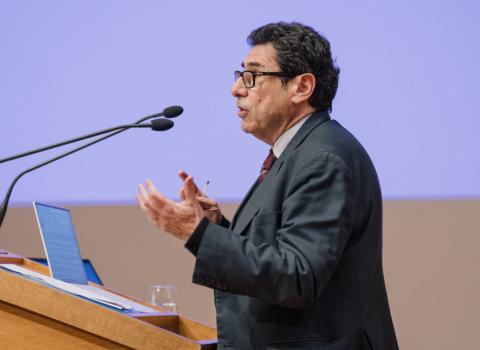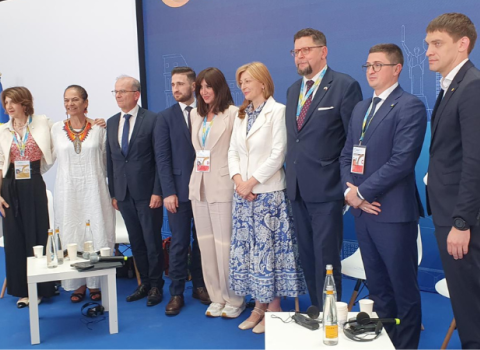The EU's flagships for industry/academic collaboration risk putting off researchers because the European Union won't fund more than 20 percent of overhead costs say research organisations.

The 20 percent cap falls far short of what was promised in the EU's research strategy, Framework programme 7 (FP7) claims the Deputy Secretary General of the European University Association, Dr John Smith.
"The rules of participation outlined in FP7 state that EU funds should cover 75 percent of direct costs of research and 60 percent of indirect costs or overheads. Why aren't these rules applied to the JTI's ?" Dr Smith asked.
"Such unrealistic capping of overhead costs displays grave ignorance of the economic realities of research," said the European Association of Research and Technology Organizations (EARTO).
"RTOs, universities, SMEs and others will turn their backs on the JTIs (if the 20 percent cap isn't lifted). They will not work at a pre-ordained loss," the association added.
So far two JTIs have been launched: the first dealing with innovative medicines and the second with fuel cells and hydrogen technologies. A calls for proposals from researchers in industry and academia has been published for the Innovative Medicines Initiative (IMI) and the selection process is underway.
The European Federation of Pharmaceutical Industries and Associations, which represents the pharma industry, is organising the Innovative Medicines JTI together with the Commission. A spokesman for the Federation said it doesn't have a position regarding the dispute about the funding model of the JTI.
However, he added, “Should it turn out that the 20 percent overhead negatively affects participation in IMI, it will of course need to be reviewed once the first call is complete."
The Commission said the 20 percent cap should have come as no surprise to the research community. "We discussed this with research organisations. They were warned about the modalities and our objective to focus spending on the research itself (as opposed to the overhead costs)," said Catherine Ray, spokesperson for research commissioner Janez Potocnik.
However, Dr Smith claimed his organisation was never consulted about the 20 percent cap. He said it is vital to raise the issue now because it appears the 20 percent cap will be used on all future JTIs, and because in 2010 FP7 will receive its mid-term review.
"The question about overheads will be reviewed, but we've been assured that if the 60 percent figure is revised downwards, it won't fall below 40 percent," Dr Smith said, adding: "We are concerned that the 20 percent figure being used in the JTIs might become the new benchmark for the whole of FP7."
Several universities that have shown an interest in the Innovative Medicines JTI have expressed concern about the overheads cap, including Oxford University in the UK and a consortium of medical faculties in some of Germany's top universities, Dr Smith said.
His association has written to Potocnik to try to resolve the issue. "There's no point boycotting the JTIs at this stage because I hope the Commission will respond to our arguments," he said.
EARTO is lobbying even more aggressively to get the cap scrapped, warning that it jeopardises the long term goals of creating a single European Research Area, and boosting innovation in the EU.
By focussing on the direct costs of research the Commission hopes to push universities and research organisations into applying better accounting procedures. Dr Smith said he agrees that improvements are needed and that reducing the amount of overheads the EU will cover is intended as "an incentive mechanism" for such change, but he insisted that the 40 percent figure earmarked for the review of FP7 "is surely the lowest it can go to."





 A unique international forum for public research organisations and companies to connect their external engagement with strategic interests around their R&D system.
A unique international forum for public research organisations and companies to connect their external engagement with strategic interests around their R&D system.